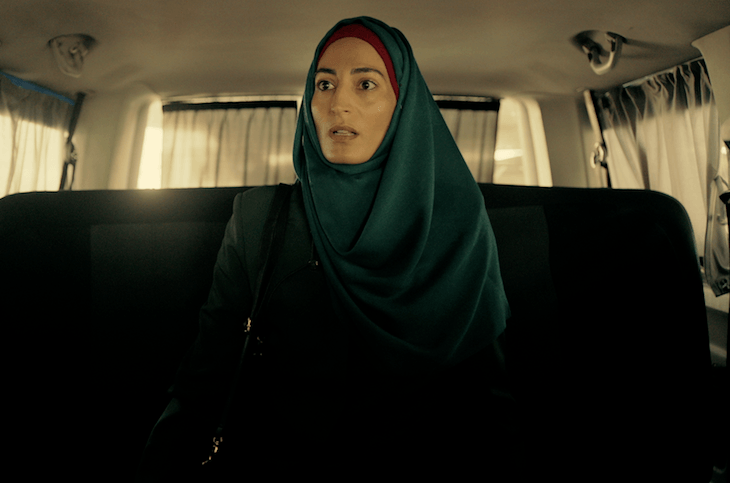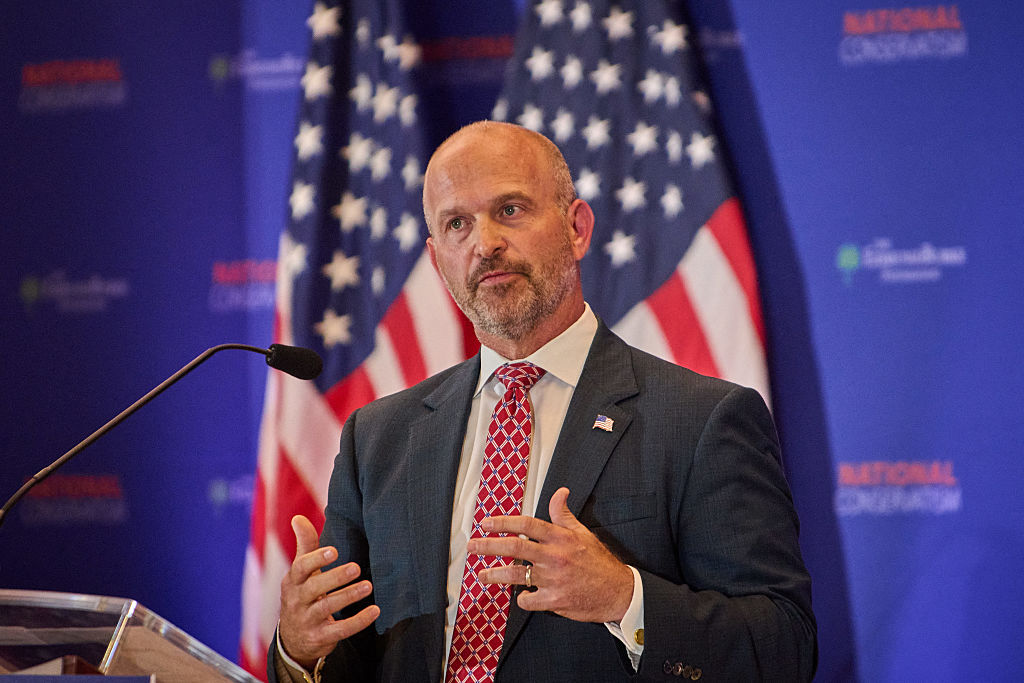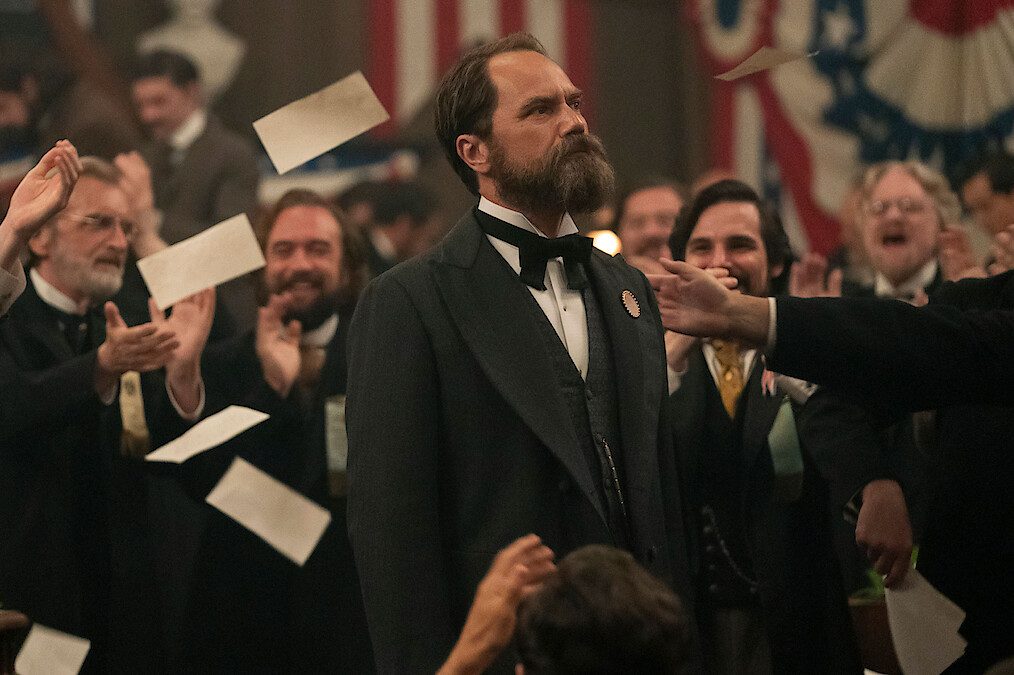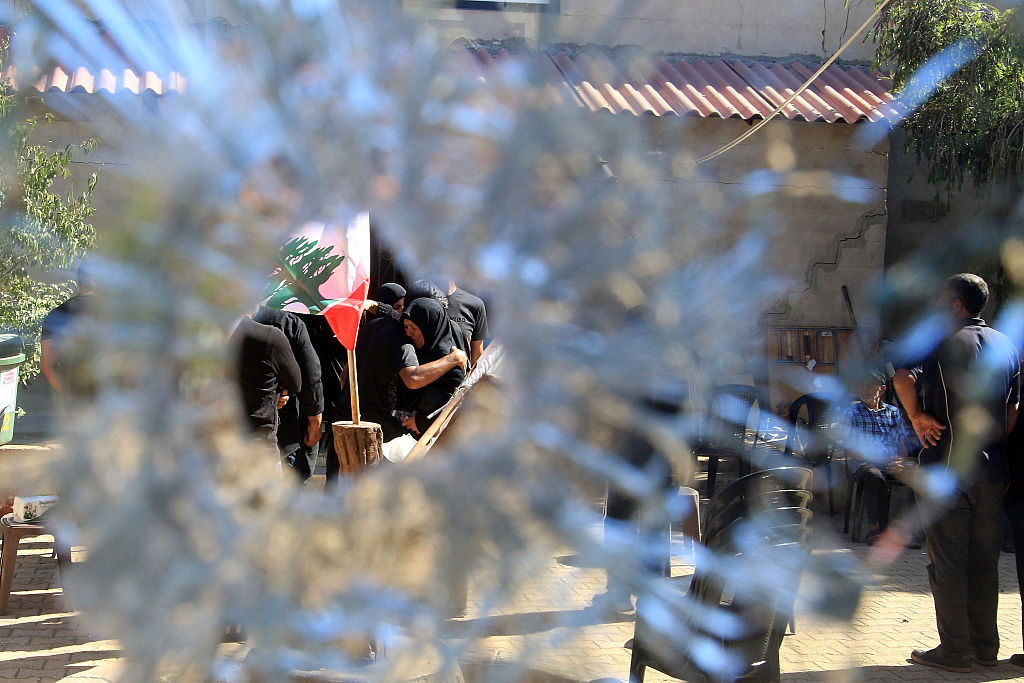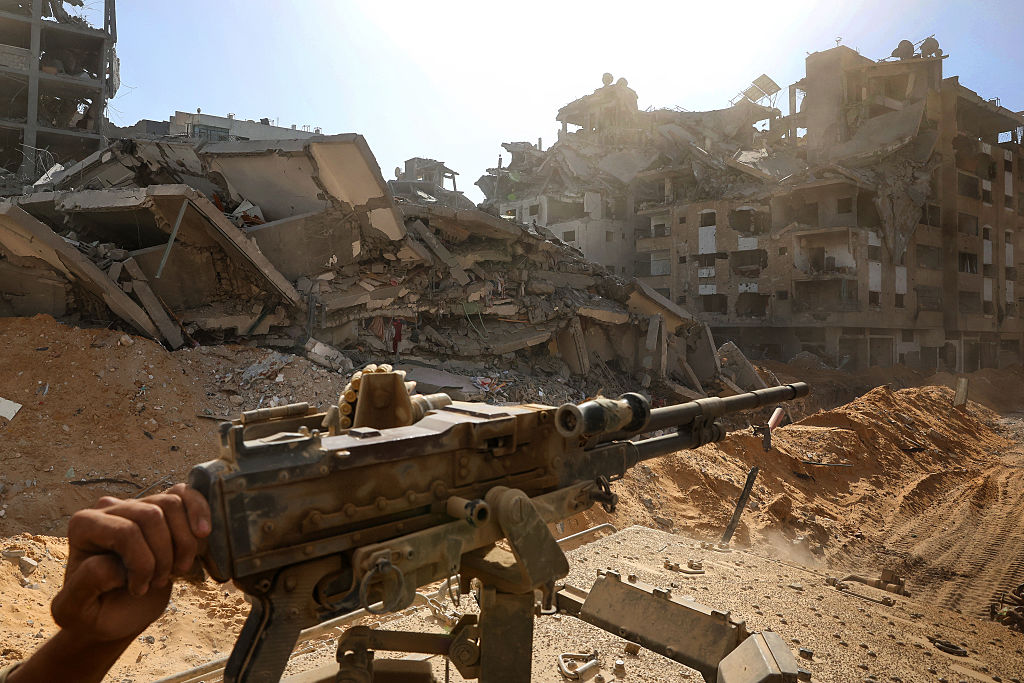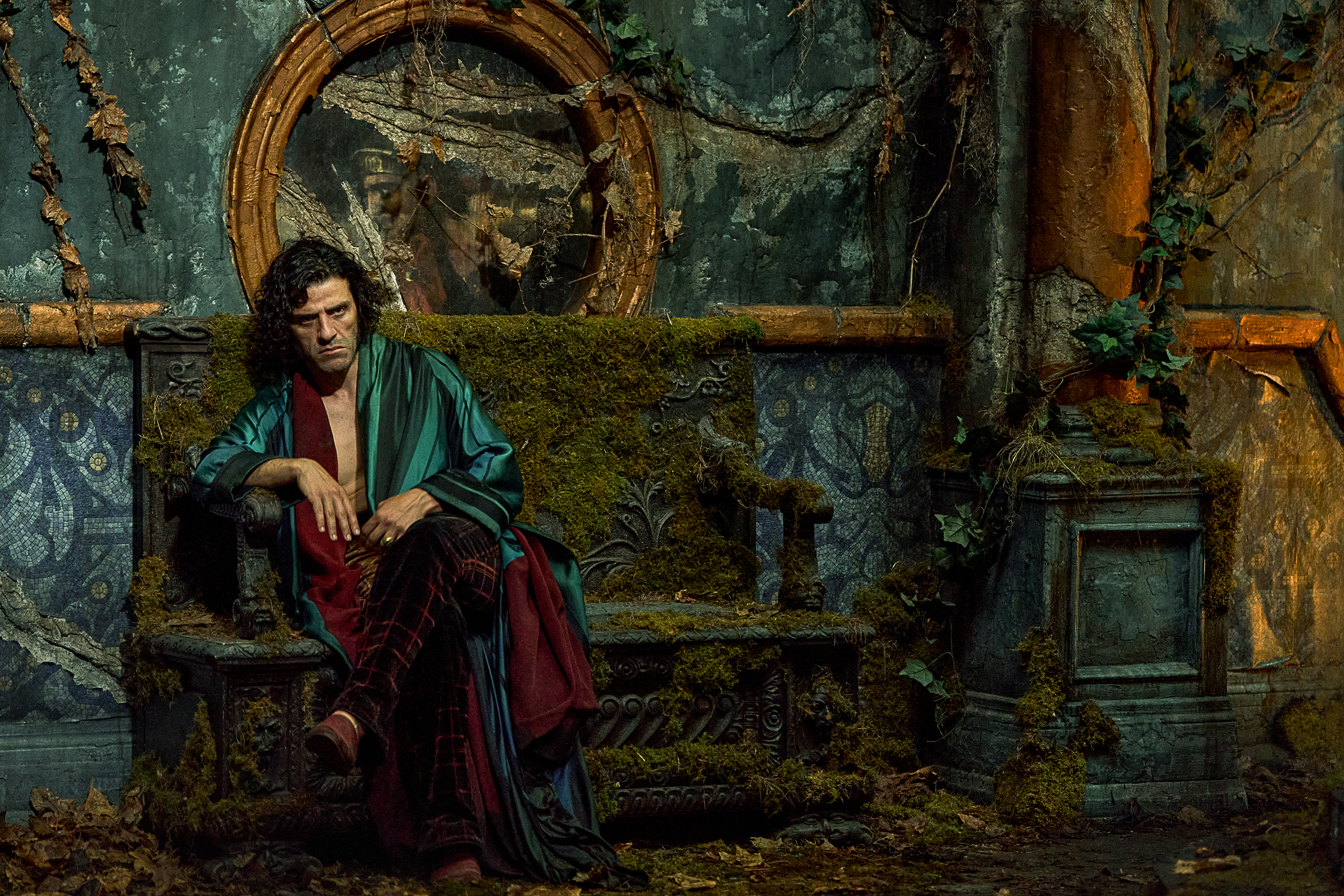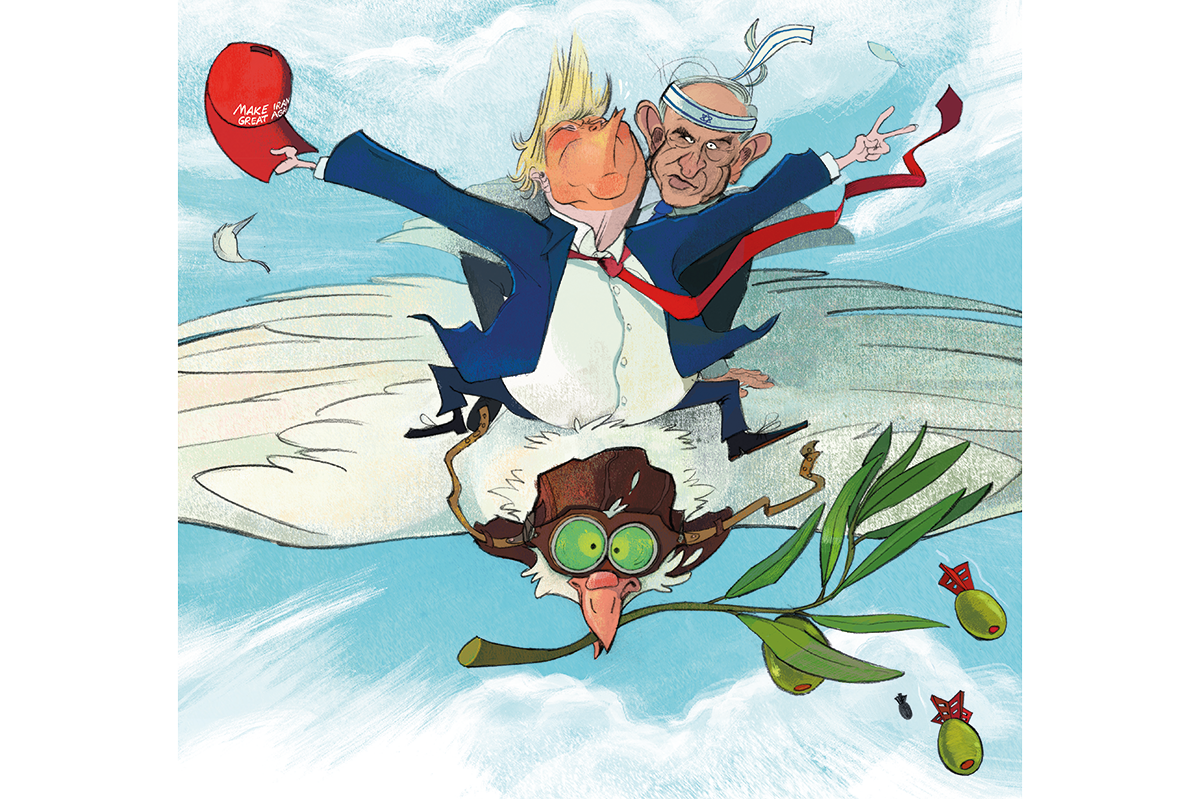‘The rule in our household is: if a TV series hasn’t got subtitles, it’s not worth watching,’ a friend told me the other day. Once this approach would have been both extremely limiting and insufferably pompous. In the era of Netflix and Amazon Prime, though, it makes a lot of sense.
There’s something about English-speaking TV — especially if it’s made in the US — that tends towards disappointment. Obviously there have been exceptions: The Sopranos; Band of Brothers; Breaking Bad; Game of Thrones. But too often, what’s missing is that shard of ice in the creative heart that drama needs if it’s to be truly exceptional.
American drama is a slobbering puppy dog. No matter how dark or weird its subject matter, there’s invariably a fatal moment where it suddenly rolls over onto its back and begs you to tickle its tummy. Its urge to show you how secretly lovable it is is more powerful than its desire to be great art. Perhaps I’ll go into more detail on another occasion but The Looming Tower and Ozark are both victims of this tendency.
Fauda (Netflix), on the other hand, doesn’t give a shit whether you think it’s caring or sharing or has a wholesome moral core. It’s Israeli. It’s not there to make friends. Or take prisoners. And as a result it’s honest, true, gripping, real — and definitely your new favourite TV series.
You can see immediately why it has been a huge hit in Israel. It’s a thrillingly gritty series about an undercover Israeli Defence Force intelligence unit whose job is to fight mostly Palestinian terrorists. There’s moody, downbeat ox-like Doron (played by Lior Raz who, before becoming an actor, did this sort of thing for real); handsome Mickey Moreno; ludicrously hot Nurit; careworn but pragmatic Captain Ayub. They’re tough, fit, committed, brave; their banter is terse; they love one another like family; they’re the defenders of their fragile, perpetually threatened civilisation.
And, by extension, of our civilisation. Their womenfolk are bareheaded, open, sexually promiscuous; they drink beer and smoke bongs at barbecues; their bars serve the same array of spirits, play the same dance music, entertain the same beautiful young things you’d find in London, Paris, New York, Tokyo; they’re religious, some of them, but not oppressively so. Life is good, the economy is booming, the future is bright.
Not so the world on the other side of the wall — so alien it might as well be Mordor or the land of the Wildlings and the White Walkers. The men all chain smoke (about the only thing they have in common with the Jews), but drink only endless sugary drinks (coffee or juice) or water. Women lurk mainly in the background, behind veils. Homes are much shabbier, except when you’re senior in Hamas which buys you a bit of bling. The general mood is one of sexual repression, simmering resentment, dogged piety — enlivened only by the constant threat of violence. You really wouldn’t want this world view to end up the winner.
Yet amazingly the Palestinians love this series too. Or perhaps not so amazingly, because it does them the service of taking them seriously, even treating them with grudging respect. Their brooding killers are intelligent, capable, single-minded, devout — the ultimate expression of a culture which combines the Mafia’s obsession with honour, blood feuds and family loyalty with unswerving submission to the will of Allah.
So apart from providing edge-of-seat entertainment (drawn-out scenes of unbearable tension suddenly bursting into car chases or shoot-outs or explosions), compelling character acting and location shots so atmospheric you wonder how they were ever able to film it (especially in places like Nablus), it gives you a far clearer understanding of what’s really going on in the Middle East than anything you’ll ever see on the BBC.
One thing you’ll quickly notice — and for goodness’ sake, watch it in Hebrew and Arabic with English subtitles, not in the dubbed version — is the extraordinary degree to which Arab culture is defined by religion. Besides all the praying and visits to the mosque which punctuate the day, every greeting and every expression of hope implicitly or explicitly invokes God (‘Inshallah’, etc). Even a trip to the hairdresser isn’t complete without the blessing to the barber ‘may God bless your hands’.
If it hadn’t been made in Israel, I suspect more effort might have been made to sanitise, prettify or otherwise westernise this culture in order to make the Palestinians more ‘sympathetic’. Fauda takes the more respectful path of simply showing things as they are: two peoples, often so similar in appearance you cannot tell them apart, often fluent in each other’s languages, yet utterly and impossibly riven by a set of inimical values derived from a wholly different religious and cultural mind set. Sadly, this one is going to run and run.



